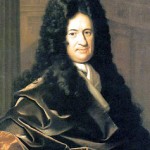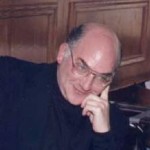I have never believed reason and the final implementation of reason, the Computer, would help mankind. Reason is a terrible trap. It compresses our reality to a single point in which we finally will vanish.
The Reason We are Here is not reason but non-reason. We are here to fight reason until it finally disappears.
The weapon with which we have to fight reason is reason itself. If we understand the simple fractal pattern behind everything we are ready to experience the spectacular effects of the simple pattern.
When you look at my blog about the Limits of Reason you can see that the solution is easy to find.
The solution is to move to the level the computer and reason never can reach, the world beyond Point Ω of Chaitin into Total Madness. It is the place where the Creative Force creates unique patterns that nobody can explain. The only thing we can do is Experience them.
The step into the world beyond Ω is in essence a step into madness. We have to leave everything we know behind. We have to skip all our patterns.
There are many types of madness but the madness I am talking about is named schizophrenia or psychosis.
I have experienced Psychosis when I suddenly jumped into the Unknown two years ago. I did not know my state was named this way. I experienced the state and tried move out of it because it was killing me. It was killing me because I received too much information. My brain was unable to find a pattern and the effect was almost total madness.
Luckily I did not go to a psychiatrist and I also did not take any pills. I just started to use the Internet to find out what was happening to me. Finally I knew I was the “victim” of something the old scientists call “Kundalini Rising“. I was experiencing something the Old Scientists call Enlightment.
When you are moving into the state of Enlightment you know there is another world behind this world and you know this world is real. It exists but the majority of humans are not aware of this world.
When you have experienced this state you suddenly understand what other enlightened humans are trying to tell. You understand the Gnosis but you also understand certain Philosophers who are trying to grasp the Reality behind our Reality.
One of them is Gilles Deleuze. Deleuze worked together with the psychiatrist Félix Guattari. One of their “Inventions” is the Plane of Immanence.
A few citations:
“Here, there are no longer any forms or developments of forms; nor are there subjects or the formation of subjects. There is no structure, any more than there is genesis.”
“We will say of pure immanence that it is A LIFE, and nothing else” [...]
“A life is the immanence of immanence, absolute immanence: it is complete power, complete bliss“
“There are only relations of movement and rest, speed and slowness between unformed elements, or at least between elements that are relatively unformed, molecules, and particles of all kinds. There are only haecceities, affects, subjectless individuations that constitute collective assemblages. [...] We call this plane, which knows only longitudes and latitudes, speeds and haecceities, the plane of consistency or composition (as opposed to a plan(e) of organization or development“
Deleuze and Guattari are using very difficult language but what they are trying to grasp is the experience of Union that occurs when your kundalini is moving. Many other people that have experienced this state of pure love have tried to find all kinds of metaphors to explain something you cannot explain.
The first time in my life the state of Union took only 30 minutes because somebody was able to drag me out of it. I wanted to stay there for ever. The second state lasted more than a week and because I was alone nobody was able to help me. It was much stronger and it came with huge flashes of Insight.
What will come in the near future is total Madness. Many people are already moving inside to find a state to cope with the Madness. The Total Madness has many names. Terrence McKenna calls it Point Omega. Funny enough the state when we pass the Limits of Reason carries the same name.
What is the Reason We are Here
I think Leibniz was not far away from his statement that Our Universe is “the most simple in hypotheses and the most rich in phenomena“. There are just a few rules that determine the Game of Life. It does not take a long time to find these rules. We can spend our whole life to prove these simple rules are not there. In this case Reasoning detracts us from the real thing.
If we want to move beyond Omega we have to stop Reasoning. At that time we are ready to Create and Experience the Unique Events of Life itself.
LINKS


